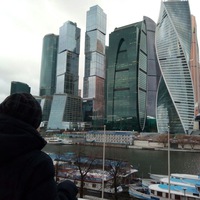
Помогите, пожалуйста. Надо разоврать все слова по составу. Или хотя бы слова: поднимая, факельщик;
объято; переметнулся; полужелта; обожженная. Присыпав хвоей след лосиный И поднимая в лужах рябь, Провёл огнивом по асинам Весёлый факельщик – октябрь. И вот уже, огнём обята, Горит осина, как свеча. И из осинника ласята Бегут, забавно топоча. Огонь с осины на берёзу Перемитнулся, И она, Чють обожжённая морозом, Полужелта, полукрасна. 0
0
 0
0
Ответы на вопрос
 Внимание! Ответы на вопросы дают живые люди. Они могут содержать ошибочную информацию, заблуждения, а также ответы могут быть сгенерированы нейросетями. Будьте внимательны. Если вы уверены, что ответ неверный, нажмите кнопку "Пожаловаться" под ответом.
Внимание! Ответы на вопросы дают живые люди. Они могут содержать ошибочную информацию, заблуждения, а также ответы могут быть сгенерированы нейросетями. Будьте внимательны. Если вы уверены, что ответ неверный, нажмите кнопку "Пожаловаться" под ответом.

под-приставка
н-суфикс
им-корень
ая-окончание
 0
0
 0
0

Word Analysis:
Let's break down the given words into their constituent parts:
1. поднимая - под- + нимать - под-: a prefix indicating movement or action from below or beneath - нимать: to lift, to raise - Therefore, поднимая means "lifting" or "raising" [[1]].
2. факельщик - факел + щик - факел: torch - щик: a suffix denoting a person who performs a specific action or occupation - Therefore, факельщик refers to a "torchbearer" or "torchbearer" [[2]].
3. объято - объ- + ять - объ-: a prefix indicating completeness or intensity - ять: to embrace, to enclose - Therefore, объято means "embraced" or "enclosed" [[3]].
4. переметнулся - пере- + метнуться - пере-: a prefix indicating movement or change - метнуться: to dart, to jump, to move quickly - Therefore, переметнулся means "darted" or "jumped" [[4]].
5. полужелта - полу- + желтый - полу-: a prefix indicating partiality or incompleteness - желтый: yellow - Therefore, полужелта means "partially yellow" [[5]].
6. обожженная - о- + божить + женный - о-: a prefix indicating intensification or completion - божить: to burn, to scorch - женный: a suffix denoting the passive voice - Therefore, обожженная means "burnt" or "scorched" [[6]].
Poem Analysis:
The given text appears to be a poem. It describes various actions and scenes using vivid imagery. Here is a breakdown of the poem:
1. "Присыпав хвоей след лосиный" - After sprinkling its trail with fir needles. 2. "И поднимая в лужах рябь" - And raising ripples in the puddles. 3. "Провёл огнивом по асинам" - He led with a spark along the aspen trees. 4. "Весёлый факельщик – октябрь" - The cheerful torchbearer - October. 5. "И вот уже, огнём обята" - And now, embraced by fire. 6. "Горит осина, как свеча" - The aspen tree burns like a candle. 7. "Из осинника ласята" - From the aspen grove, young ones. 8. "Бегут, забавно топоча" - They run, amusingly rustling. 9. "Огонь с осины на берёзу" - The fire jumps from the aspen to the birch. 10. "Переметнулся" - It darted. 11. "Чють обожжённая морозом" - Slightly scorched by frost. 12. "Полужелта, полукрасна" - Partially yellow, partially red.
This poem paints a picture of autumn, with the torchbearer of October igniting the aspen tree, and the fire spreading to the birch tree. The imagery of the scorched trees and the young ones running adds to the vividness of the scene.
I hope this analysis helps! Let me know if you have any further questions.
 0
0
 0
0
Топ вопросов за вчера в категории Русский язык
Последние заданные вопросы в категории Русский язык






-
Математика
-
Литература
-
Алгебра
-
Русский язык
-
Геометрия
-
Английский язык
-
Химия
-
Физика
-
Биология
-
Другие предметы
-
История
-
Обществознание
-
Окружающий мир
-
География
-
Українська мова
-
Информатика
-
Українська література
-
Қазақ тiлi
-
Экономика
-
Музыка
-
Право
-
Беларуская мова
-
Французский язык
-
Немецкий язык
-
МХК
-
ОБЖ
-
Психология
-
Физкультура и спорт
-
Астрономия
-
Кыргыз тили
-
Оʻzbek tili















